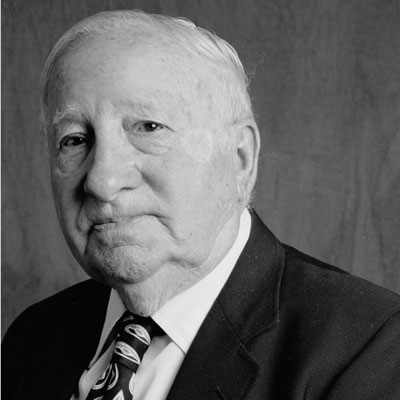At Auschwitz concentration camp, Sam Weinreich labored by day covering corpses with chlorine disinfectant. By night he sang for the doctors for an extra piece of bread. His song—and maybe the bread—kept him alive. “I would sing a particular song that would always make this one Czechoslovakian doctor cry.”
Sam remembered his home in Poland and his eight brothers and sisters. He remembered the family-run furniture and antique shops. He remembered the piercing shout of a cyclist going door to door warning that the Germans were coming. “I fled to Warsaw to protest the treatment of the Jewish people, but the city was burning and people were starving. I returned home.” When the Nazis seized his shop, Sam’s father lost the ability to support his family. Cold and desperately hungry, they went willingly to what they thought would be a better place: the Lódz Ghetto. Sam chopped wood all day for an extra bowl of soup. In 1944 he was deported to Auschwitz. He never saw anyone he knew again.
Later sent to Dachau, Sam managed to escape as he exited the train. “We walked through the forest for weeks…we were hungry…we had just about given up.” One morning, as they slept on a bed of leaves, nearly frozen to death, an American soldier found them. “This American soldier said he would take care of us…I never thought I would live to hear that. Ever.”

